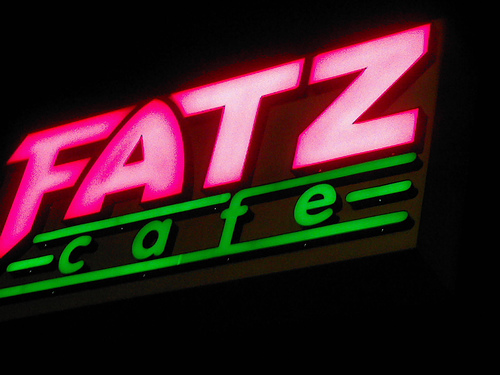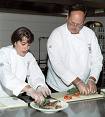Chain Leader magazine reports that new kitchen employees at Fatz Café in South Carolina take a food-safety pre-test and must receive an 80 percent or higher before they can begin training. Workers take another practice quiz, then a final food-safety test. The company also promotes quarterly initiatives on food-safety topics that are discussed at the monthly operator-partner meetings. Handouts and new training tools are sent via mail and e-mail, and presented during pre-shift meetings.
 Director of Training Sara Anderson said,
Director of Training Sara Anderson said,
"We were already doing ServSafe [the National Restaurant Association Educational Foundation’s food-safety training program] with our management, but we wanted to make sure that it was truly getting down to the front lines. …
"We really had to start marketing to them to get the buy-in on the importance of it. These habits take time to form. Educating people on why it’s so important has really helped make it happen and make it become real-life practices. We just keep adding more and more aspects of it. It’s become a part of our culture more than it ever was. … We’re sticking to basics and constantly talking about it."
Food safety information must be rapid, reliable, relevant and repeated. And to really create a culture that values microbiologically safe food, start marketing such efforts.

 Niagara Region politicians are calling on the province to make food safety preparation training mandatory for everyone in Ontario employed in the preparation and serving of food to the public.
Niagara Region politicians are calling on the province to make food safety preparation training mandatory for everyone in Ontario employed in the preparation and serving of food to the public. The
The